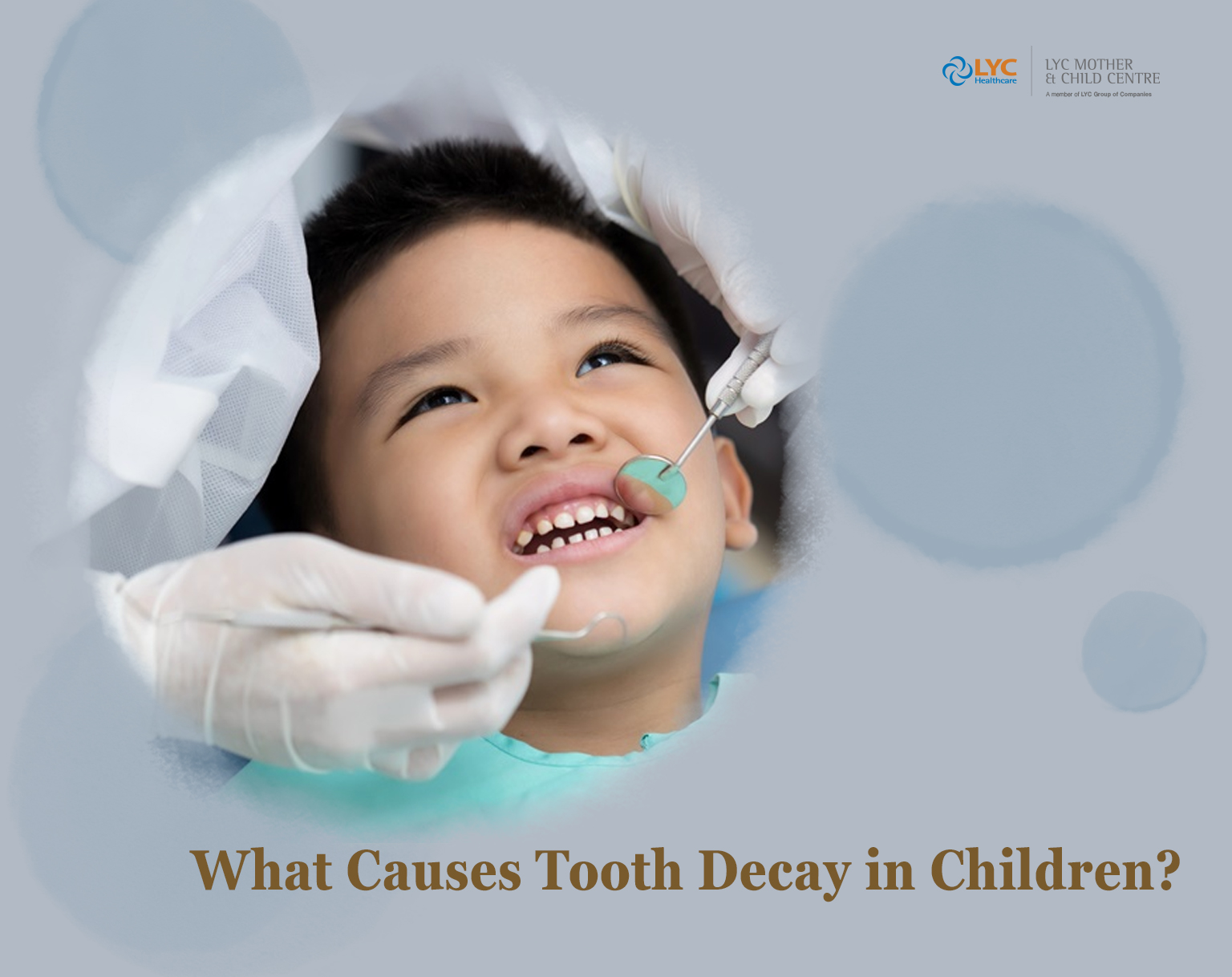What Causes Tooth Decay in Children?

Tooth decay is caused by bacteria in the mouth that produce a sticky substance called plaque, which eats away at the enamel of your teeth.
Tooth decay occurs when foods containing carbohydrates, such as sugars and starches, remain on the teeth for a long time. These foods include milk, soda, raisins, candy, cake, fruit juice, cereal, and bread. Bacteria in the mouth usually alter these foods, producing acid so that a combination of bacteria, food, acid, and saliva forms a substance called plaque, which sticks to the teeth and eats away at the enamel, causing cavities.
Which children are at risk for tooth decay?
All children have bacteria in their mouths and are at risk of tooth decay, but the following may increase the risk of tooth decay:
- High levels of bacteria that cause tooth decay.
- A diet high in sugar and starch.
- Drinking fluoride-free boiled water daily.
- Poor oral hygiene.
- Saliva flow is less than normal.
What are the symptoms of tooth decay in children?
The changes in each child's teeth will be somewhat different, and the symptoms of tooth decay will also vary from person to person, and cavities may not necessarily cause symptoms, and sometimes tooth decay can only be found after careful examination by a dentist. The following are common signs of tooth decay:
- White spots begin to form on the teeth in the affected area, meaning the enamel is starting to crack, leading to tooth sensitivity.
- Cavities develop on the teeth, which are light brown in color.
- The cavities deepen, turning from dark brown to black.
- Pain around the teeth.
- Sensitivity to certain foods, such as sweets or hot or cold drinks.
How to help prevent tooth decay in children?
You can help prevent cavities in your child by following these simple steps:
- Start brushing as soon as your child's first tooth erupts. Brush the teeth, tongue and gums twice a day with fluoride toothpaste.
- For children under 3 years old, the amount of toothpaste is about the size of a grain of rice; after 3 years old, use a pea-sized amount of toothpaste.
- Floss your child's teeth daily after age 3.
- Make sure your child eats a balanced diet and limit snacks that are high in sugar, such as chips, candy, cookies and cakes.
- Do not share utensils to prevent the spread of germs from your mouth to your child’s.
- If your baby uses a bottle at bedtime, milk will remain in their mouth and on their teeth, and juice or formula can also contain sugar that can cause tooth decay, so don't put your baby to sleep with a bottle.
- Schedule a routine dental checkup for your child every 6 months.
